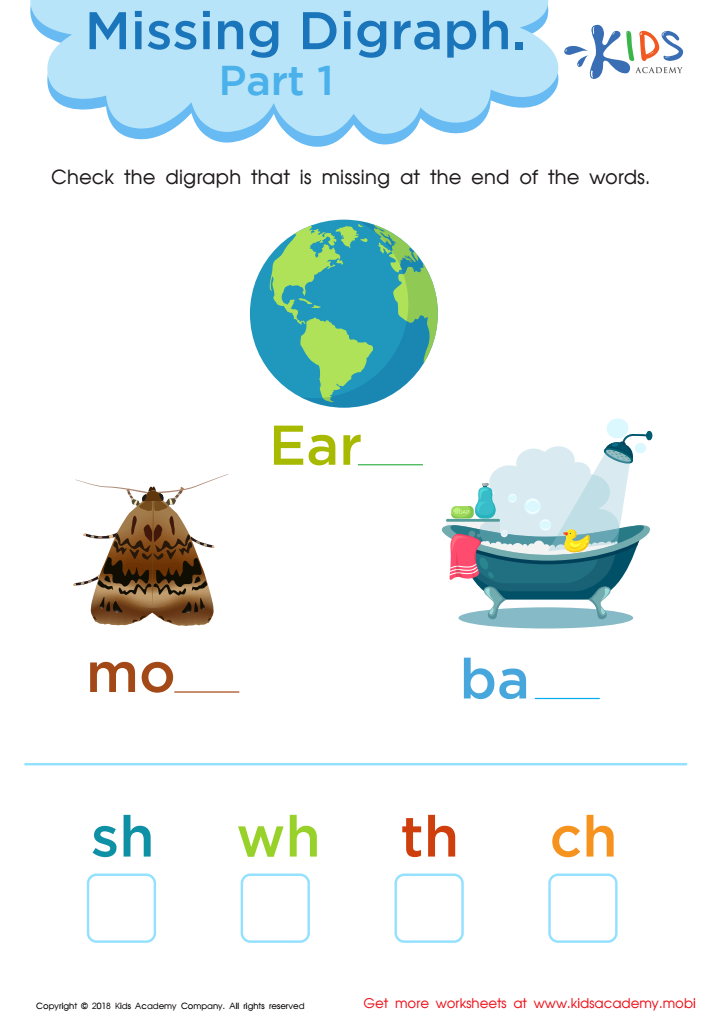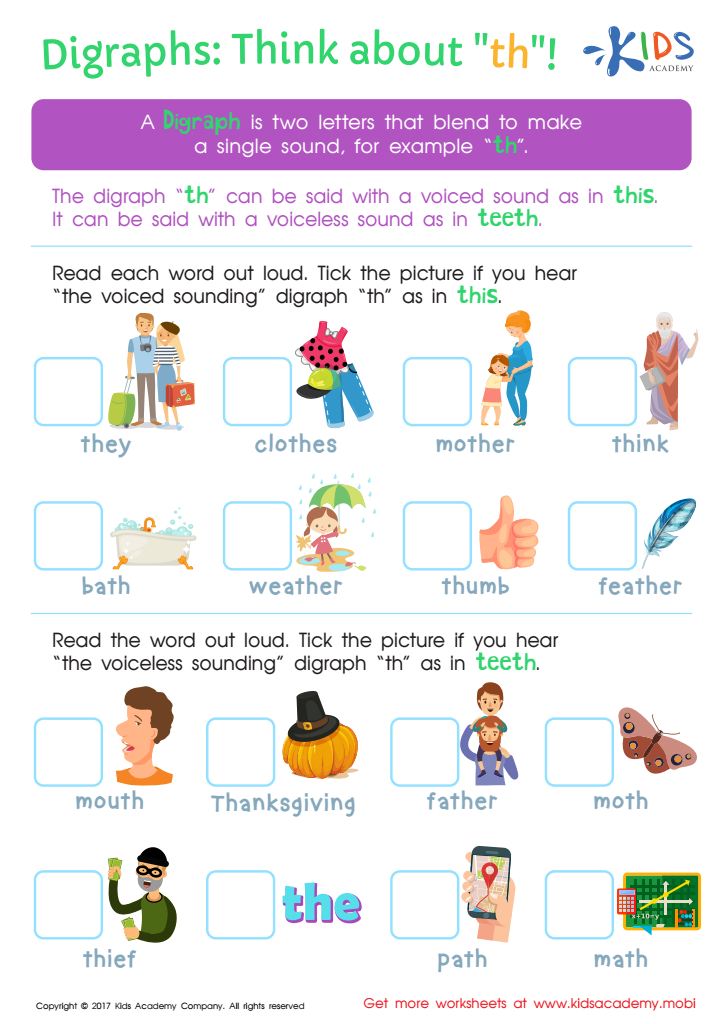Normal Ending Sounds Worksheets for Ages 6-7
3 filtered results
-
From - To
Introducing our comprehensive Normal Ending Sounds worksheets, expertly crafted for young learners aged 6-7. These engaging and innovative worksheets are designed to solidify your child's understanding of phonics, focusing specifically on mastering normal ending sounds. Through a variety of fun and interactive activities, children will explore and reinforce their knowledge, enhancing their reading and spelling skills. Perfect for both classroom and at-home learning, our Normal Ending Sounds worksheets for Ages 6-7 offer a solid foundation in phonics that will support your child's journey to becoming a confident reader and writer. Start your child’s adventure in phonics mastery today!


Missing Digraph: Part 1 Worksheet


Digraphs: Think About "th" Worksheet


Twin Onset Worksheet
Normal Ending Sounds worksheets are an essential tool designed specifically for children ages 6-7, aiming to bolster their understanding and recognition of phonics, particularly in the crucial area of ending sounds. These worksheets are not just sheets of paper; they are a gateway for young minds to explore and grasp the nuances of language, setting a solid foundation for their reading and writing skills.
At the ages of 6-7, children are at a pivotal point in their linguistic development. They are transitioning from decoding simple words to reading more complex texts. Normal Ending Sounds worksheets cater to this developmental stage by providing exercises that challenge and engage young learners, making the learning process both effective and enjoyable.
The significance of these worksheets lies in their focus on ending sounds, which are often tricky for young learners to master. By concentrating on these sounds, children learn to identify patterns in word formation, which is crucial for their spelling and reading comprehension. The repetitive yet varied exercises ensure that children can practice and internalize these sounds, promoting their ability to read fluently and with confidence.
In conclusion, Normal Ending Sounds worksheets for Ages 6-7 are a valuable resource in any young learner's journey towards literacy. They support the development of essential phonetic skills in an engaging and age-appropriate manner, preparing children for successful academic progress.

 Assign to My Students
Assign to My Students













